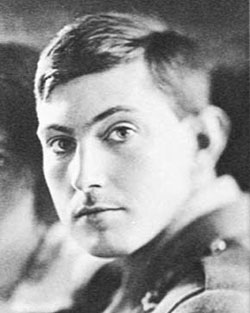A Quote by Ernst Mach
The presentations and conceptions of the average man of the world are formed and dominated, not by the full and pure desire for knowledge as an end in itself, but by the struggle to adapt himself favourably to the conditions of life.
Related Quotes
A perfect life is a contradiction in terms. Life itself is a state of continuous struggle between ourselves and everything outside. Every moment we are fighting actually with external nature, and if we are defeated, our life has to go. It is, for instance, a continuous struggle for food and air. If food or air fails, we die. Life is not a simple and smoothly flowing thing, but it is a compound effect. This complex struggle between something inside and the external world is what we call life. So it is clear that when this struggle ceases, there will be an end of life.
It may be said that myths give to the transcendent reality an immanent, this-worldly objectivity. Myths speak about gods and demons as powers on which man knows himself to be dependent, powers whose favors he needs, powers whose wrath he fears. Myths express the knowledge that man is not master of the world and his life, that the world within which he lives is full of riddles and mysteries and that human life also is full of riddles and mysteries.
Without the suitable conditions life could not exist. But both life and its conditions set forth the operations of inscrutable Power. We know not its origin; we know not its end. And the presumption, if not the degradation, rests with those who place upon the throne of the universe a magnified image of themselves, and make its doings a mere colossal imitation of their own. Wonder was the motive that led people to philosophy ... wonder is a kind of desire in knowledge. It is the cause of delight because it carries with it the hope of discovery.
Man is the namer; by this we recognize that through him pure language speaks. All nature, insofar as it communicates itself, communicates itself in language, and so finally in man. Hence, he is the lord of nature and can give names to things. Only through the linguistic being of things can he get beyond himself and attain knowledge of them-in the name. God's creation is completed when things receive their names from man, from whom in name language alone speaks.
So, if you cannot understand that there is something in man which responds to the challenge of this mountain and goes out to meet it, that the struggle is the struggle of life itself upward and forever upward, then you won’t see why we go. What we get from this adventure is just sheer joy. And joy is, after all, the end of life. We do not live to eat and make money. We eat and make money to be able to enjoy life. That is what life means and what life is for.
Mathematical knowledge is not-as all Cambridge men are surely aware-the result of any special gift. It is merely the development of those conceptions of form and number which every human being possesses; and any person of average intellect can make himself a fair mathematician if he will only pay continuous attention; in plain English, think enough about the subject.
The significance of language for the evolution of culture lies in this, that mankind set up in language a separate world beside the other world, a place it took to be so firmly set that, standing upon it, it could lift the rest of the world off its hinges and make itself master of it. To the extent that man has for long ages believed in the concepts and names of things as in aeternae veritates he has appropriated to himself that pride by which he raised himself above the animal: he really thought that in language he possessed knowledge of the world.
The ignorant man is not free, because what confronts him is an alien world, something outside him and in the offing, on which he depends, without his having made this foreign world for himself and therefore without being at home in it by himself as in something his own. The impulse of curiosity, the pressure for knowledge, from the lowest level up to the highest rung of philosophical insight arises only from the struggle to cancel this situation of unfreedom and to make the world one's own in one's ideas and thought.
Man's desire for the approval of his fellows is so strong, his dread of their censure so violent, that he himself has brought his enemy (conscience) within his gates; and it keeps watch over him, vigilant always in the interests of its master to crush any half-formed desire to break away from the herd.



































